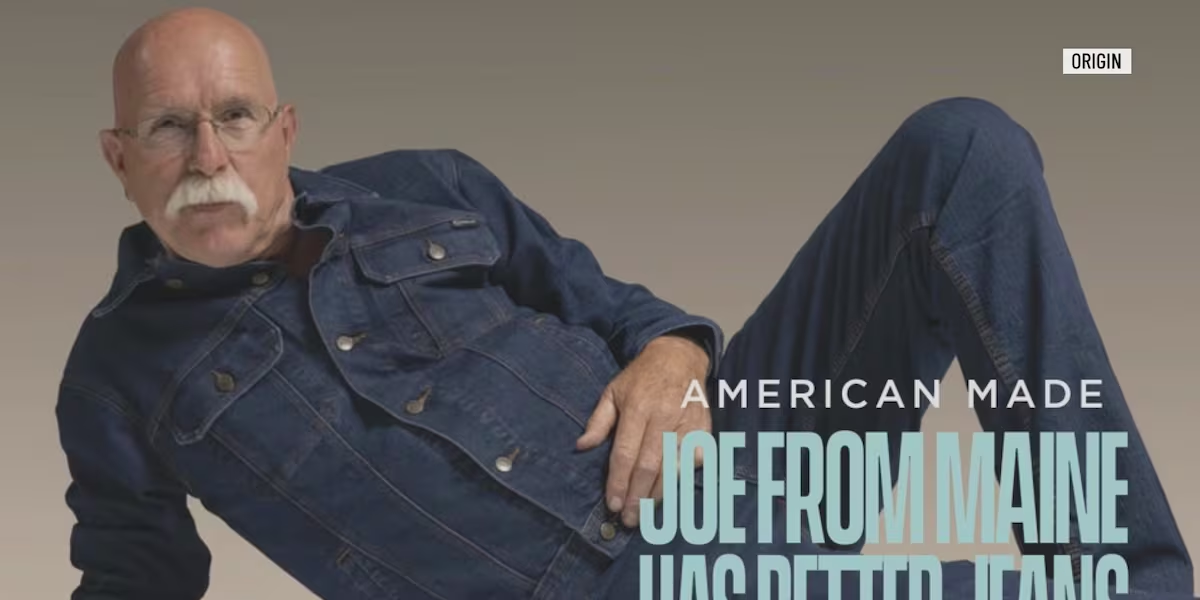
Food52's Recipe for Disaster: 1 Cup Fraud, 300K Garnish

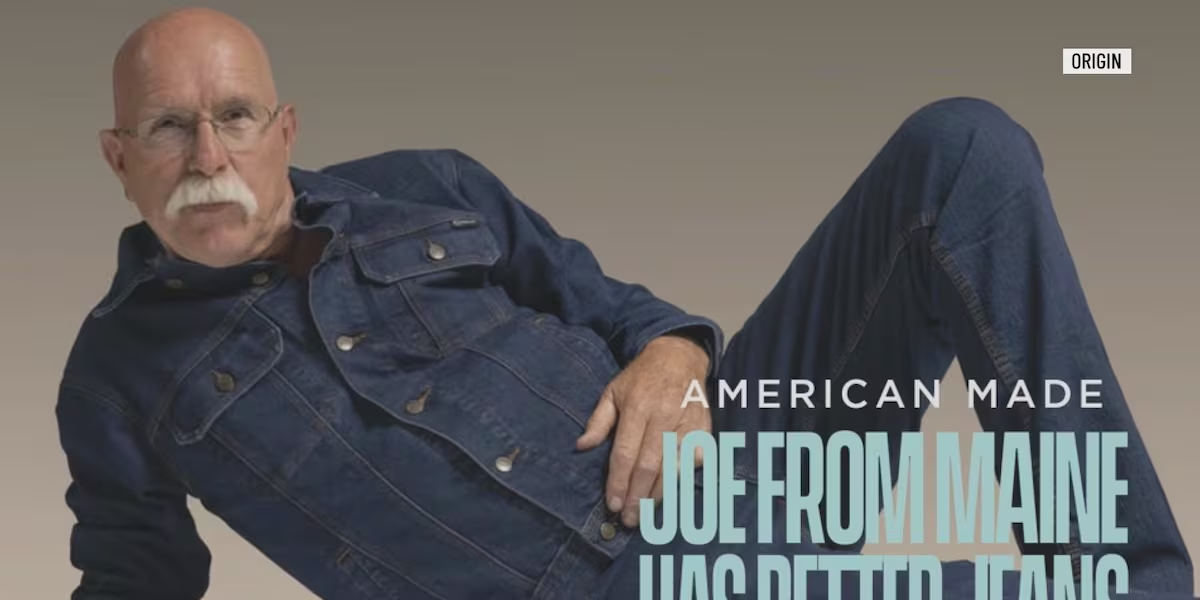
Welcome to Wednesday, futurists.
American Eagle sees foot traffic drop 9% following Sydney Sweeney ad controversy for both weeks since the campaign launched, proving that cultural missteps have measurable retail consequences that extend beyond social media outrage. The data from (admittedly unknown data provider) Pass_by may forecast how quickly brand perception issues translate into tangible business impact.
Meanwhile, Origin, a Farmington, Maine-based clothing company, launches Sydney Sweeney-inspired ads, because apparently controversy and mimetics is the new marketing strategy for smaller brands looking to capitalize on viral moments and cultural flashpoints.
This is "Thirst Commerce" meeting hard retail metrics. We've previously analyzed how celebrities like Sweeney monetize their own objectification, but this data shows the flip side: when that commercialization of desire backfires, it translates directly into lost foot traffic.
This comes at the worst possible time, Back to School, where apparel retailers like AEO depend heavily on foot traffic to make Q3 numbers. In 2024 earnings, AE executives cited Back to School traffic as being the bolster for their strong Q3.
But Back to School is no longer a monocultural affair. It’s also a social video and creator-led economy; where what is in your friend’s feed is more important than what their mom is Tweeting about.
— Phillip
P.S. Are you in Chicago? Are you going to be in Chicago for Shoptalk Fall? If we threw an after hours blues club shinidig, would you come? Reply to this email.


Expense Account Anarchy. Shannon Muldoon, the Food52 brand partnerships manager who spent $300k on designer clothes (paywalled) and personal flights for years (YEARS) because no one reviewed Expensify expenses, is in the cultural conversation due to a recent article in The Cut.
The culinary lifestyle brand, known for teaching people how to properly poach an egg, apparently never learned how to properly audit employee spending.
Muldoon reportedly paid $15,000 in restitution and agreed to a plea deal of five years’ probation; but Reddit, unsurprisingly, is out for blood. “Also, she was NEVER a rockette and is from Jersey lol.”
This corporate oversight failure is indicative of the blind spots in modern expense management systems of lifestyle brands, where automated approval processes can enable years of unchecked financial abuse.
Our Take: This isn't just corporate negligence—it's symptomatic of how lifestyle brands blur the boundaries between personal and professional spending.
In the creator economy, where "brand partnerships" often involve actual partnerships with individual taste-makers, the line between legitimate business expense and personal indulgence becomes dangerously thin.
Food52's failure exposes how many lifestyle brands operate internally with influencer-adjacent financial practices without influencer-level oversight.


AI Ad Evolution: Jess Bachman of Fireteam demonstrates their entire AI ad workflow, using Veo3 through Kling, including the entire end-to-end brief-to-post process.
The complex reality behind seemingly simple AI-generated commercials involves multiple tools and numerous dead ends, but the result is a feature-quality 16:9 ad that takes a single creator around an hour to “shoot,” edit and direct. The process exposes both the gaps and the opportunities between AI marketing hype and current capabilities. Bachman notes that concepts must be written to minimize product interaction, as AI struggles with seamless product integration.
In short: it’s wildly useful, visually arresting, and obviously AI. The tech is still 20% of where it needs to be for high-volume commercial applications (and requires a rethink of ad creation workflows), but in at last this case, it excels at generating flaming tigers and floating beds that would make Salvador Dalí proud.
Our Take: Bachman’s transparency about the complexity becomes more engaging than polished AI marketing would be. We're witnessing Cunningham's Law applied to technology adoption: the best way to get people to understand AI's limitations isn't to explain them, but to show the messy reality behind the glossy demos.

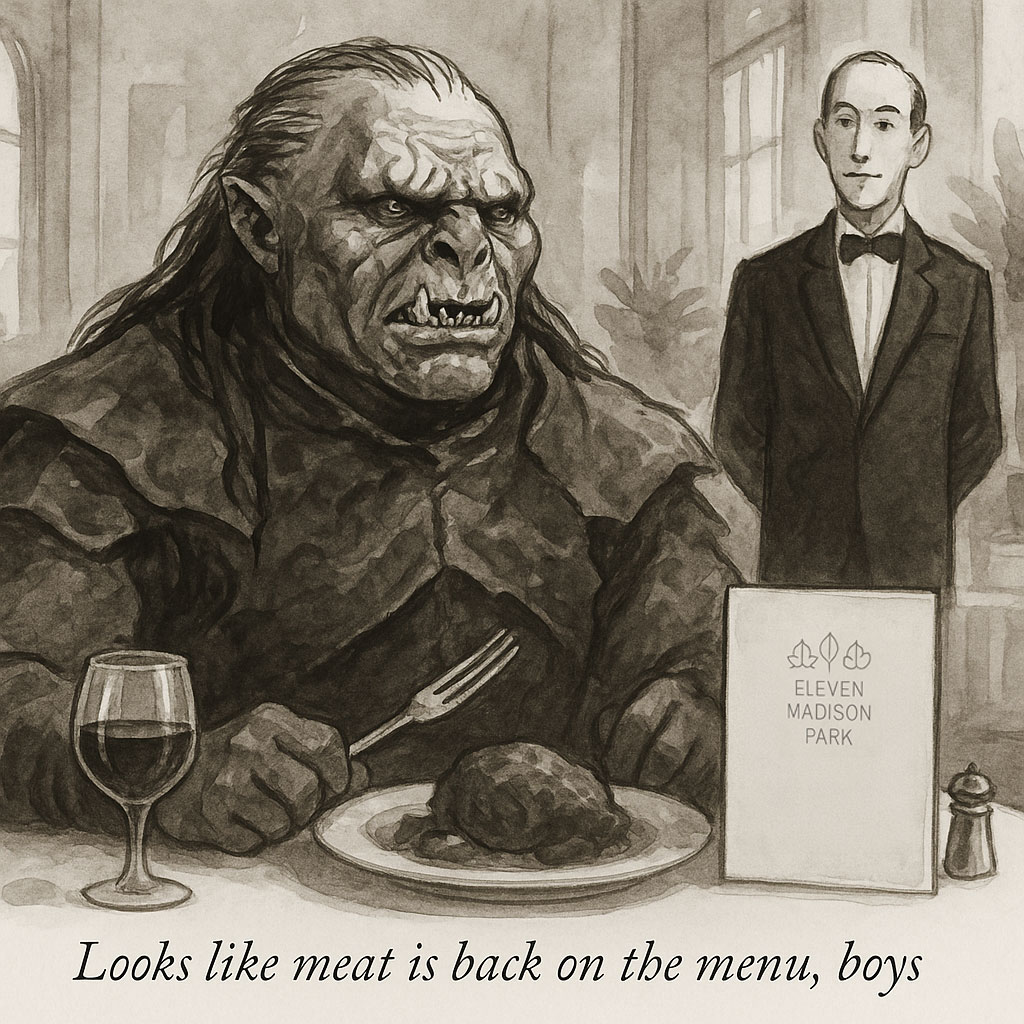
Plant-Based Pivot Reversal. After four years of the vegan experiment that also doubled as virtue signaling, drawing both global praise and skepticism, Eleven Madison Park brings meat back to its menu in what amounts to a culinary admission of defeat.
Chef Daniel Humm's climate-minded experiment, while admirable in intention, apparently couldn't sustain the economic realities of operating a Manhattan fine dining establishment. The restaurant's pivot back to omnivore offerings suggests that environmental consciousness, while important to diners, takes a backseat to flavor and financial viability. Chef wants to be more "welcoming and popular," which apparently translates to admitting that plants alone don't pay Manhattan rent or satisfy the expectations of customers dropping serious money on a memorable meal.
Our Take: This is the inevitable collision between performative sustainability and economic reality. Eleven Madison Park's plant-based era was always more about brand positioning than genuine environmental impact; a restaurant's attempt to virtue signal while maintaining prestige.
The retreat to meat reveals how sustainability messaging often functions as marketing theater rather than sustainable business practice; a duality that also appears in our upcoming Gen Z authenticity report.
When ideology meets P&L statements in Manhattan fine dining, the spreadsheet wins every time.
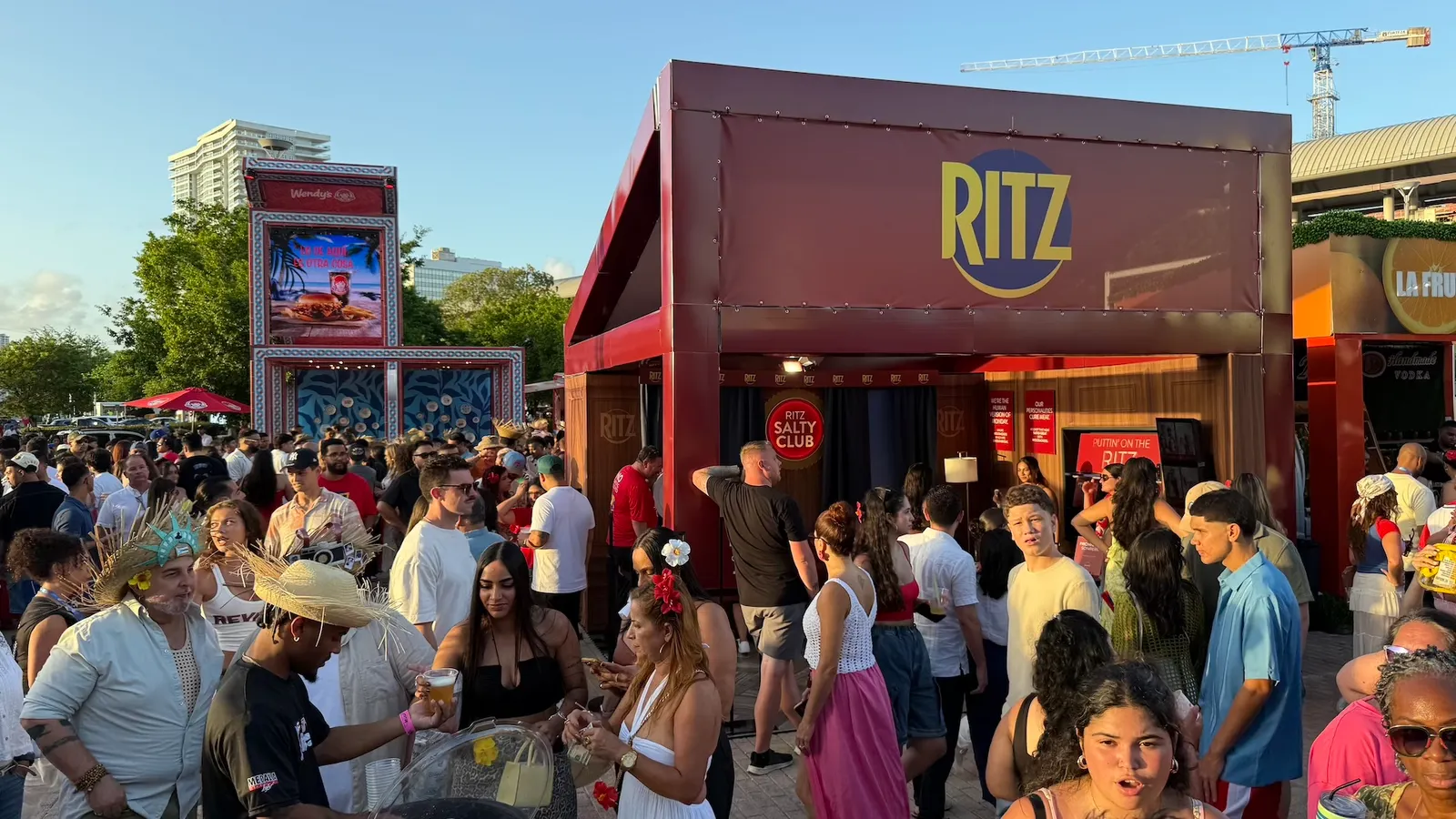
Ritz Gets a Reggaeton Remix. Mondelēz is modernizing Ritz crackers through a partnership with Bad Bunny as part of its broader strategy to connect with consumers around culture rather than just product features.
From bringing the ‘Salty Club’ featured in the Super Bowl commercials to life to its partnership with MLS, the snack category is the last great hope for the legacy holdcos who are struggling for relevance in an increasingly diffuse marketplace suffering for paradox of choice.
Our Take: This represents the evolution from celebrity endorsement to cultural integration. Bad Bunny isn't just selling crackers—he's lending his cultural capital to make Ritz feel relevant to audiences who view brands through the lens of authenticity and cultural fluency. It's a more sophisticated approach than traditional celebrity marketing because it acknowledges that modern consumers don't just buy products; they buy into cultural narratives.









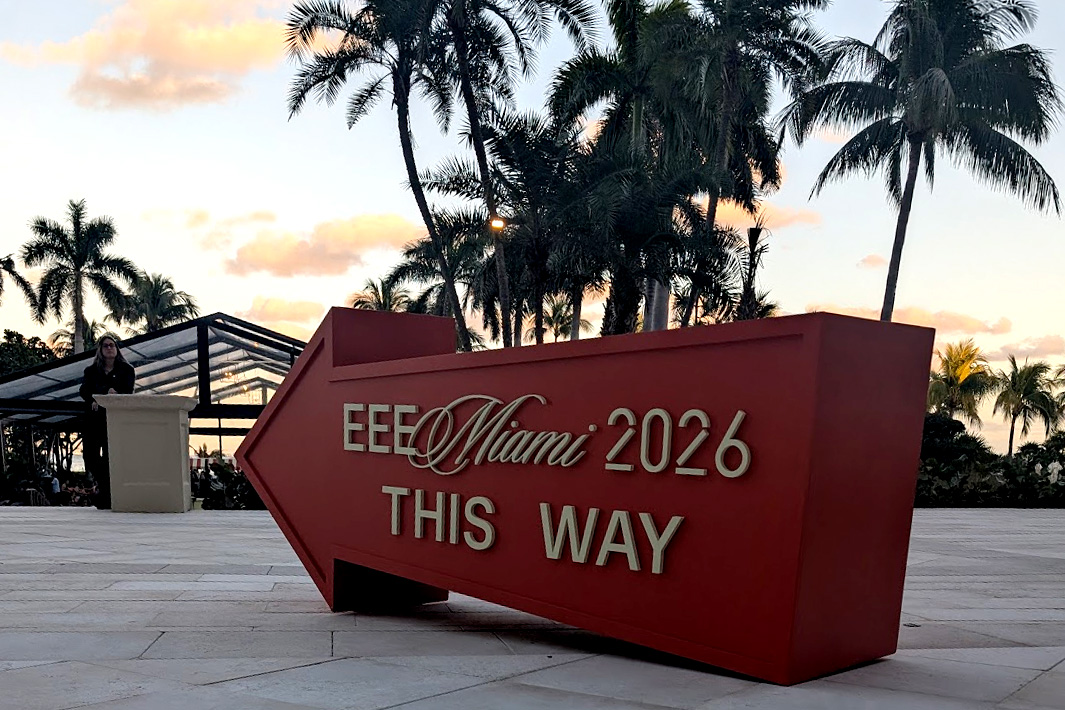


.svg)
